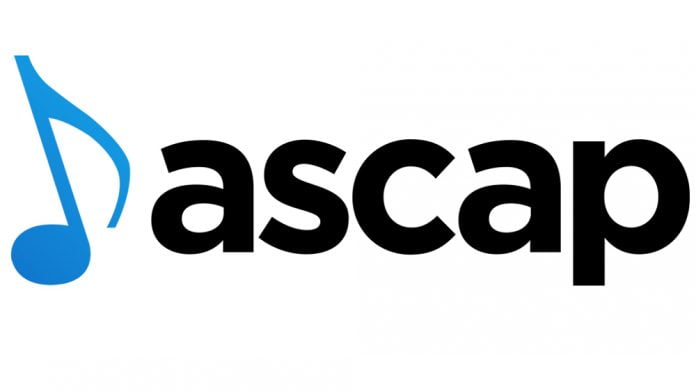ASCAP, The American Society of Composers, Authors and Publishers, the world leader in performing rights and advocacy for music creators, announced record-high revenues and distributions in 2017. The organization, which today represents more than 660,000 members, collected approximately $1.144 billion in revenues last year and distributed for the first time more than $1.007 billion to its songwriter, composer and music publisher members. Total ASCAP revenues increased by 8 percent and distributions were up 10 percent year-over-year.
Revenues from ASCAP’s licensing efforts in the US alone grew nearly 11 percent in 2017 to $846 million, up $86.9 million over 2016.
Domestic distributions from ASCAP-licensed and administered performances in the US also increased, to $723 million, up 15 percent over 2016.
ASCAP operates on a not-for-profit basis and delivers about 88 cents of every dollar collected back to members for performances of their music. With a 2017 operating expense ratio of about 12 percent, ASCAP remains among the most efficient Performance Rights Organizations in the world, while transforming to stay ahead of massive changes in the music industry.
ASCAP’s domestic revenue growth was fueled by increased revenues across multiple platforms, including audio streaming services, audiovisual media and radio. ASCAP also continued to secure future revenues for members by closing significant licensing deals with major media companies. An agreement with YouTube for public performance rights and data collaboration, announced last June, will improve the accuracy and reliability of the metadata attached to musical works, and will result in greater compensation for ASCAP members.
ASCAP debuted a market-leading suite of digital tools in its Member Access portal in 2017, unparalleled in the performing rights sector. The tools make it easy for songwriters, composers and publishers to register and manage large catalogs of music and provide songwriters and publishers with new data visualization tools for a deeper dive into their earnings data. Ultimately, ASCAP’s new tools empower members to make more informed business decisions about their catalogs and works.
ASCAP’s groundbreaking moves in transparency and innovation continued to lead the industry toward more cooperation and alignment on data issues. Together with SACEM and PRS for Music, ASCAP launched an initiative to improve the sharing of unique identifiers and matching of sound recordings and compositions across the industry and in multiple territories, leveraging cutting-edge technology, such as blockchain and graph databases. ASCAP and BMI also announced a joint database reconciliation project of our songs repertories that will deliver an authoritative view of ownership shares for the vast majority of music licensed in the US.
ASCAP members wrote the soundtrack to 2017. From pop to hip-hop, Latin to R&B, country to EDM and rock to gospel, music from ASCAP songwriters crowned 31 separate year-end song charts in 2017 and took all 10 of the Top 10 spots on the year-end Billboard Hot 100. Chart-topping members included Ashley Gorley, Drew Taggart, Daddy Yankee, Christopher Brody Brown, James Fauntleroy, Ray Charles McCullough & Jeremy Reeves (The Stereotypes), Frederic Kennett, Isaac Slade, Joe King, Kandi Burruss, Tameka Cottle, Steve Mac (PRS), Justin Bieber, Poo Bear, Mattman & Robin (STIM), Kendrick Lamar, Mike Will Made-It, Lil Uzi Vert, Louis Bell and Quavo.
More than 45,000 new members joined ASCAP in 2017, among them Dua Lipa, Carlos Vives, Maluma, Nana Rogues (Drake, “Passionfruit”), Jonas Jeberg (Fifth Harmony, “Sledgehammer” & Selena Gomez, “Fetish”) and Emily Warren (The Chainsmokers, “Don’t Let Me Down ft. Daya” & Dua Lipa, “New Rules”). Top ASCAP members renewing their agreements included Billy Joel, Cardi B, Coldplay, Meghan Trainor, Sam Hunt, Ariana Grande, Donald Fagen, Justin Bieber, Joss Favela, Big Sean, Kendrick Lamar, Drew Taggart (of The Chainsmokers), Benj Pasek & Justin Paul, Christopher Brody Brown, Starrah, Demi Lovato, French Montana, Lil Uzi Vert, Brett James, Henry Jackman and Heitor Pereira.







